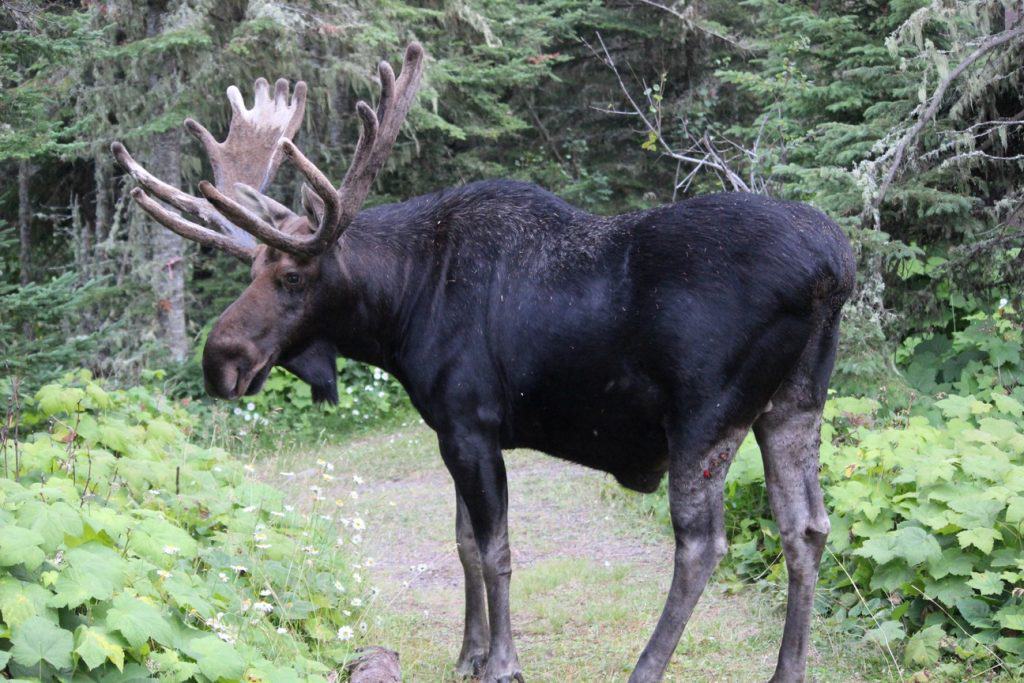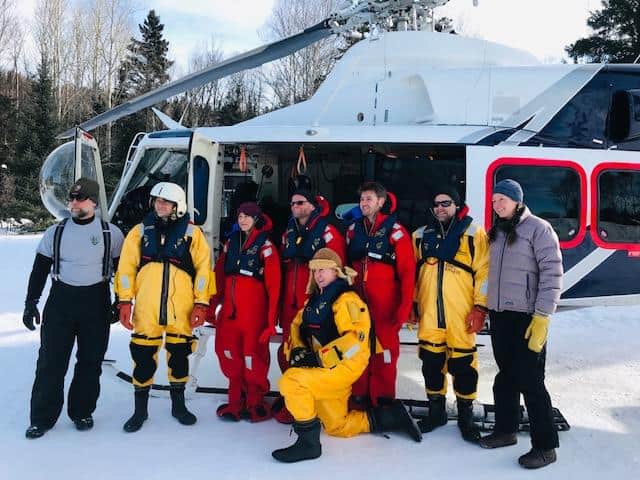
Last week, scientists at Isle Royale National Park completed work to put advanced tracking collars on 20 moose at the Lake Superior site. They hope to use the information to track not only the animals’ movements, but also health, behavior, habitat, and more.
It is the first time since 1985 that moose will be tracked at Isle Royale. Then, collars could only provide basic location data. The collars affixed to the moose this month will track all movements, send the data immediately, and measure factors like temperature and biometrics.
“On Isle Royale, the application of multifunctional ‘smart’ collar technology to include activity sensors (e.g., GPS + biologgers + external temperature + accelerometer) would assist park managers and cooperating researchers in understanding ecosystem level impacts of the moose population, delineate trophic interactions and assess population health,” a summary reads, as reported by M-Live.
Using an airplane and helicopter, the team attached collars to 10 moose on each end of the 45-mile-long island.

Increasing understanding
The project is part of Michigan Technological University’s long-running study the of predator-prey relationships at the isolated site. Funding has been provided by the National Parks of Lake Superior Foundation.
Efforts are also underway to bring more wolves to the National Park yet this winter, as part of a controversial plan to restore the predator’s population as a means of controlling moose numbers and ecological imbalance.

In late January and early February, despite the extended federal government shutdown, wolf managers attempted to transfer wolves from a Canadian island in Lake Superior to Isle Royale. Due to weather, only one short attempt could be made, and it was unsuccessful.

